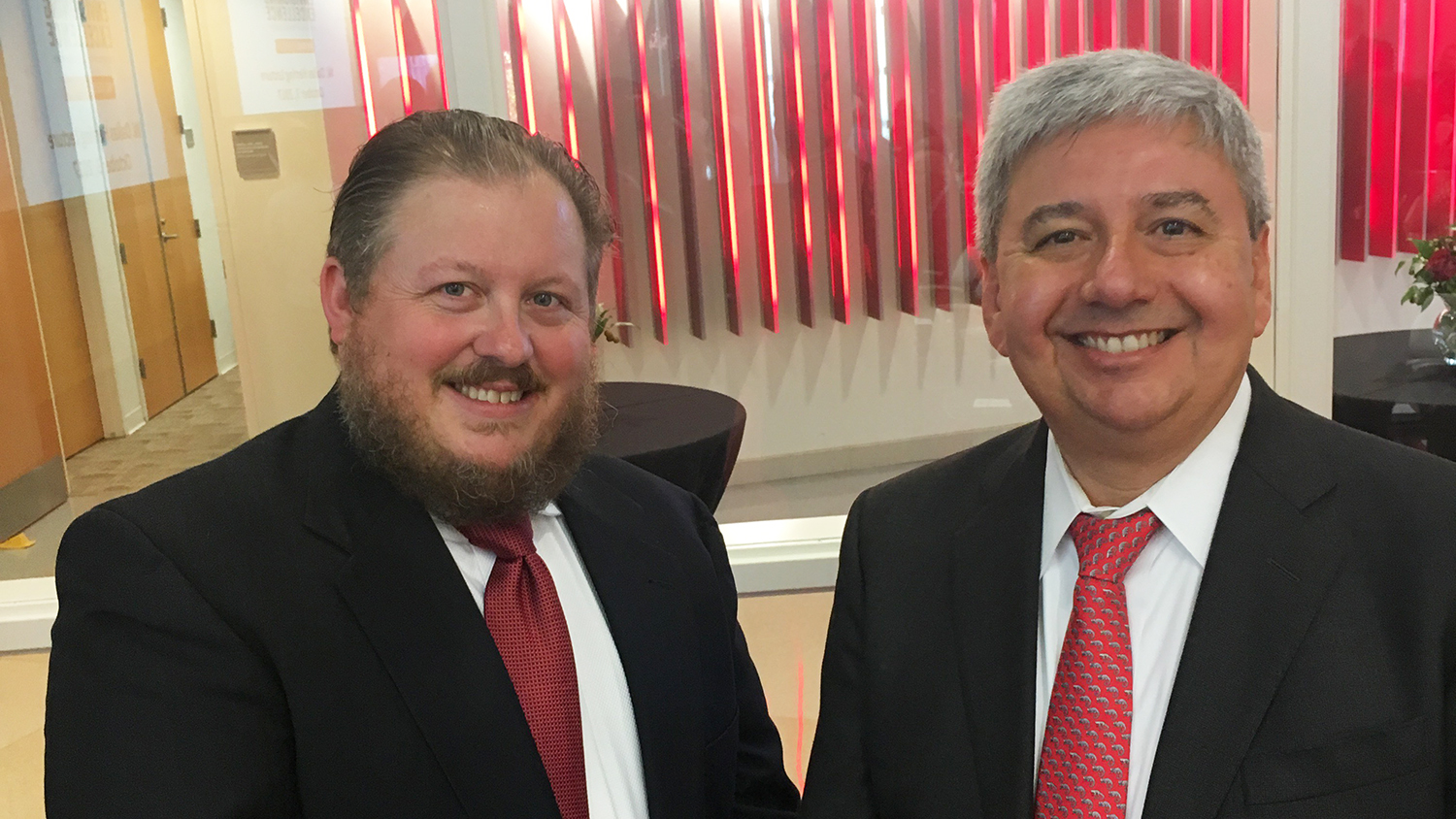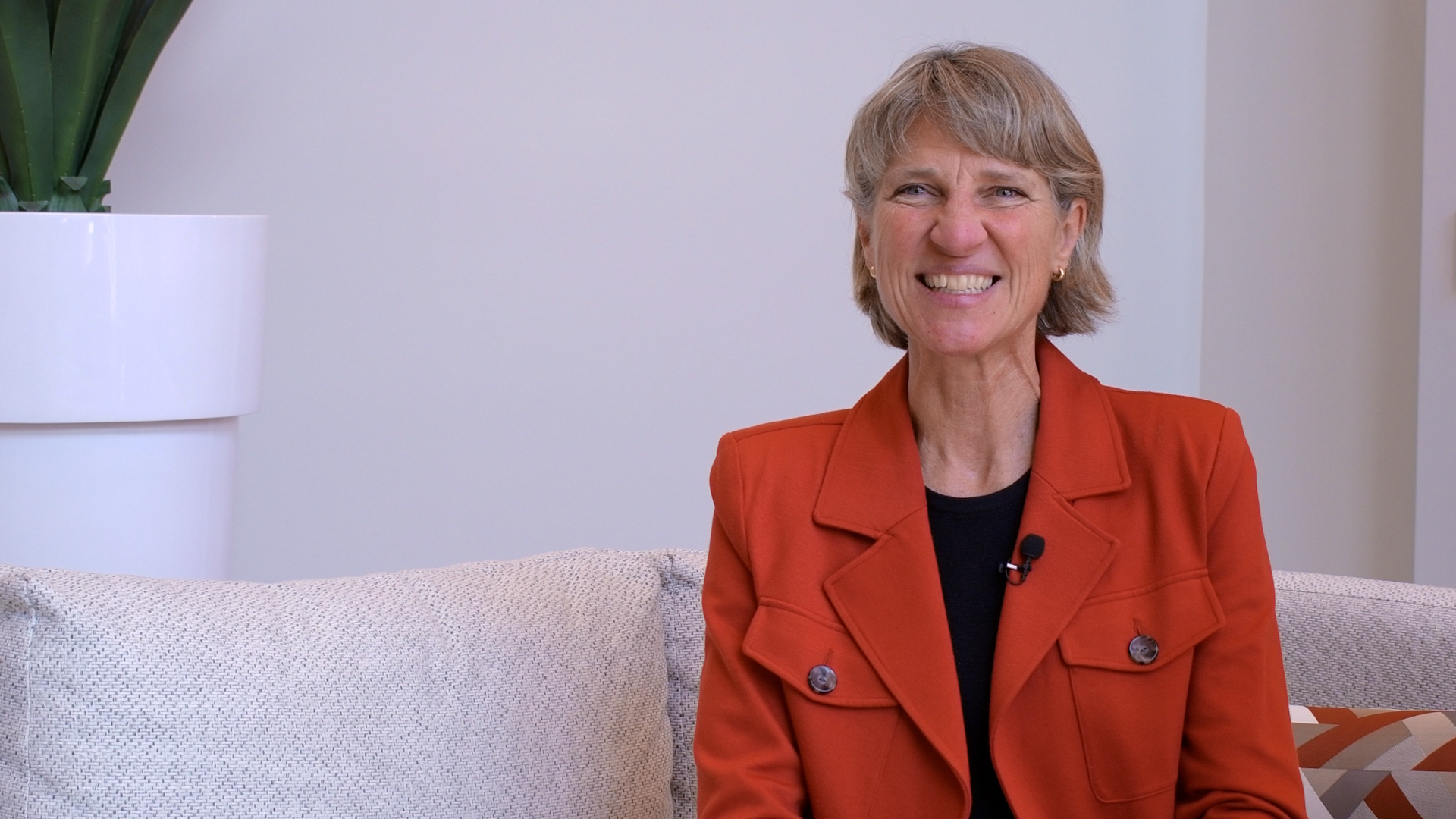New Executive Mentorship Program Demonstrates Leadership in Action

Launched in 2017, the Executive Mentorship Program is developing a pipeline of future leaders for the North Carolina Community College System under the Envisioning Excellence umbrella of the NC State College of Education. Doctoral students within the Adult and Community College Doctorate of Education program enroll in this three-year initiative to gain real-world experience alongside current community college executive leaders.
Through exposure to leadership in action, students will witness innovative perspectives, ideas, and approaches to the niche career of leading a community college. This program will also cultivate the leadership and personal coaching styles of executive leaders who sign on as mentors.
“My doctoral program does an excellent job of sharing critical thinking strategies to combat the future dilemmas of community colleges,” said first-year doctoral student Jairo McMican whose dissertation will center around the impact of organizational and cultural change.
“What the executive mentorship program does is enhance the practicality of those strategies learned and synthesize it with a proven leader currently in the field.”
On a broader scale, this program will provide engagement opportunities for executive leaders at community colleges to collaborate with the faculty at NC State College of Education which in turn develops and strengthens the relationship between the university and community colleges in North Carolina and beyond. This semester, mentors represent 16 community colleges hailing from four states and Washington, D.C.
“It is our desire for students to build a valuable connection between the relationship they develop with their mentor and their experiences inside the classroom,” said Dr. Carrol Warren, Teaching Assistant Professor in Adult and Community College Education.
“While coursework provides students with valuable skills and tools, the additional program component offered by an executive mentor provides students with a practitioner’s perspective.”
She says this model of mentoring supplemented with coursework will lead to an enhanced learning environment where research connects to practice in a meaningful way.
Through the Executive Mentorship Program, students will have the opportunity to discuss potential routes to mid-level executive leadership roles in a community college setting while working on the doctoral curriculum. Additionally, students will gain exposure to legislature meetings and institutional leadership activities. Mentors will also discuss institutional research processes and their mentee’s career goals.
“The mentorship program has provided an opportunity for me to connect with a more experienced person in the field of education who is willing to coach and guide me through my professional journey,” said Yolanda Wilson, a second-year doctoral student who aspires to obtain a college presidency and give back to the field of scholarship after graduation.
“To have a mentor who is willing to share valuable insights, provide exposure to meetings and events, and challenge me to think and grow in my own career and educational pursuits is incredibly rewarding.”
Using an adaptation of the survey used by the Aspen Institute in its fellowship programs, mentors and students self-identify strengths and weaknesses during the matching process through a survey. This study ensures mentor-student pairs will benefit from each other’s skill set and strengths while taking into account the career goals of the student.
Warren says many of the mentors view serving in this capacity as a way of giving back, or as doing their part to help prepare the next generation of community college leaders.
The Mentors
- Dr. Algie Gatewood
Alamance Community College - Dr. Bill Ingram
Durham Tech Community College - Dr. Bob Shackleford
Randolph Community College - Dr. Brian Merritt
Central Carolina Community College - Dr. Dale McInnis
Richmond Community College - Dr. Deborah Lamm
Edgecombe Community College - Dr. J. Larry Keen
Fayetteville Tech Community College - Dr. Katie Kandalec
Athens State University, Georgia
- Dr. Lawrence Rouse
James Sprunt Community College - Dr. Mary Rittling
Davidson County Community College - Dr. Michael Elam
Halifax Community College - Dr. Pam Howze
National Fund for Workforce Solutions, (D.C.) - Dr. Patrice Mitchell
Trident Tech. College (Charleston, SC) - Dr. Randy Parker
Guilford Tech Community College - Dr. Scott Ralls
Northern Virginia Community College - Dr. Terri Lee
Johnston Community College
The Directors
NC State College of Education’s Adult and Community College doctoral program hosts cohorts in Raleigh and Charlotte and provides a unique opportunity for working professionals to complete their doctoral degrees in less than three and a half years. The program is co-directed by Dr. James Bartlett II, Associate Professor, and Dr. Rey Garcia, Professor of Practice, two industry leaders and advocates.
Under Dr. Bartlett’s direction, more than 80 percent of Charlotte’s cohort of doctoral students complete their coursework and finish their dissertations. That’s higher than the national average. He believes a key component to this rate of success is establishing mentor relationships. Recently, he received the College’s Graduate School Outstanding Graduate Faculty Mentor Award for his efforts in student success.
After a 20-year career as President and CEO of the Texas Association of Community Colleges, Dr. Garcia found a higher calling to develop the next generation of community college leaders. His perfect fit for doing that was with NC State thanks to the leadership program formed by NC State’s College of Education and the Aspen Institute’s College Excellence Program.
- Categories:


